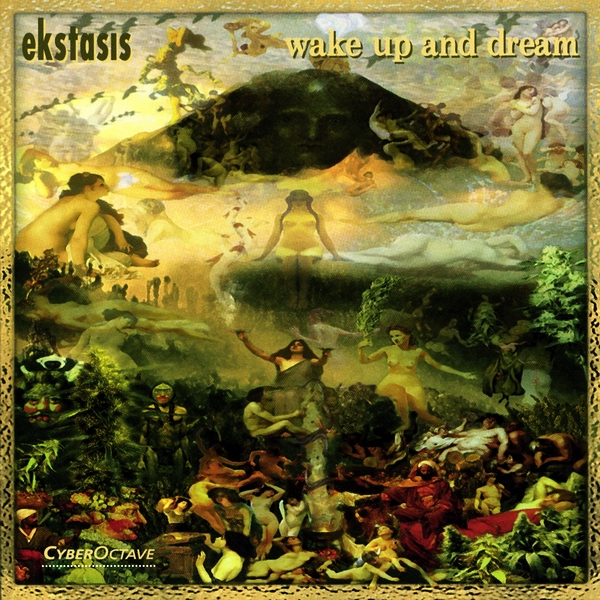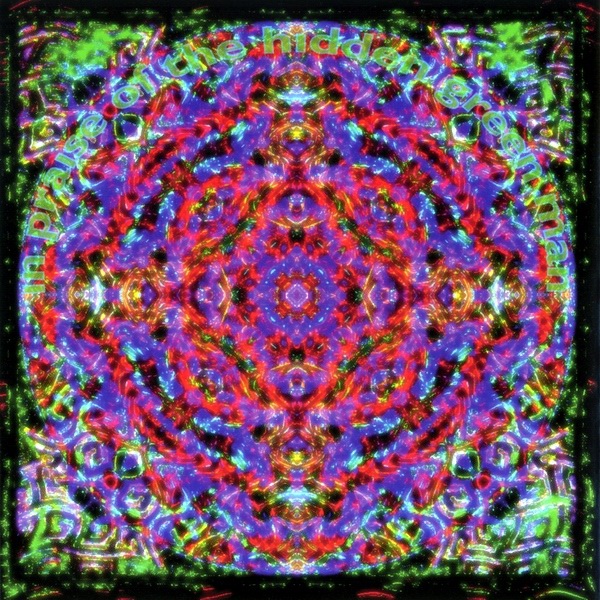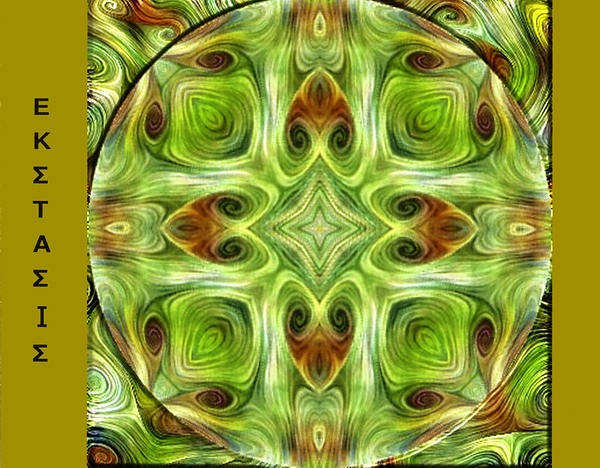EKSTASIS






1/ Providence (Skopelitis,Laswell) 6.45
2/ Elysium (Skopelitis,Laswell) 7.55
3/ Heartland (Skopelitis,Wobble) 8.10
4/ Midnight Mass (Skopelitis) 7.35
5/ Nepenthe (Skopelitis) 8.00
6/ Eureka (Skopelitis,Laswell) 7.30
7/ Shower of Stars (Skopelitis,Wobble) 10.06
Recorded and mixed at Orange Music, West Orange, New Jersey
Engineering: Robert Musso
Produced and arranged by Bill Laswell and Nicky Skopelitis
Executive Producers: Matt Marshall and Dan Selene
Mastered by Michael Fossenkemper at Turtle Tone Studios, NYC
Material Design: John Brown
Luma Productions: Janet Rienstra
Nicky Skopelities: 6 & 12 string guitars, acoustic guitar, electric sitar, baglama;
Jah Wobble: bass; Bill Laswell: bass, sounds; Jaki Leibezeit: drums; Zakir
Hussain: tabla; Badal Roy: tabla.
1998 - CyberOctave (USA), COCD 46408 (CD)
1998 - CyberOctave/Virgin (UK), VHOCD 38 (CD)
Wake Up And Dream is Skopelitis' second full- length, produced under the Ekstasis moniker. Laswell produces and contributes some bass, legendary Can drummer Jaki Leibezeit mans the trap kit, and Zakir Hussain and Badal Roy (the latter played with Miles Davis during his '70s fusion heyday) beat the tablas. Together, they go for a trancy, somewhat ambient sound, with the exotic pulse of the tabla often drowning out the more Western groove of Leibezeit as Skopelitis adds all manner of guitar texture on top. It's slow, drawn- out and lush, and with Laswell at the controls, the sound is expectedly great.
The problem, though, is that those of us who lived through the '80s remember this kind of stuff as "new age." There's no getting around it, this is music to get a massage to, and it wouldn't seem at all out of place on a Windham Hill sampler. So while it's soothing, rich and relaxing, there's little in the way of contrast to pull you in, and the variety common to many of the instrumental indie rock bands that occasionally cover this territory is sorely missed.
There is some interesting stuff going on here and there, and the musicianship is certainly first rate. But the uniformly strong playing further serves to make Wake Up And Dream feel like an album by musicians for musicians. For example, take Pat Metheny. (Please.) I mean, have you ever known anyone into Metheny who didn't play guitar themselves?
I guess, in the end, it was Rakim who said it best: "Don't sweat the technique."
5.1/10 - mediocre...not good, but not awful...
Mark Richard-San (courtesy of the Pitchfork Media website)
Try not to get confused, here: yes, Ekstasis was the name of Nicky Skopelitis' first solo album on the Axiom label, and he was accompanied by a lineup similar to this one (which consists of the ubiquitous Bill Laswell and the irrepressible Jah Wobble on bass, drummer Jaki Liebezeit and tabla players Zakir Hussain and Badal Roy). This time, though, it's the band that's called Ekstasis, and although the music is very much in the same trancey, world-beatish, ambient mode as before, it's better realized and generally more interesting this time out. Skopelitis is mapping out more definite guitar melodies these days, which allows the band to flex and groove more creatively without fear of losing the thread-notice the subtly dubwise drum fades and wild tabla extemporizations on "Providence," all of which are possible because Skopelitis keeps his guitar part disciplined and tonal. "Nepenthe" starts out abstract and arrhythmic, but then lapses into an easy groove over which the guitar shreds quietly. Some will call this stuff downtown muzak. I say if it sounds good, it is good, and this sounds very good.
Rick Anderson (courtesy of the All Music Guide website)